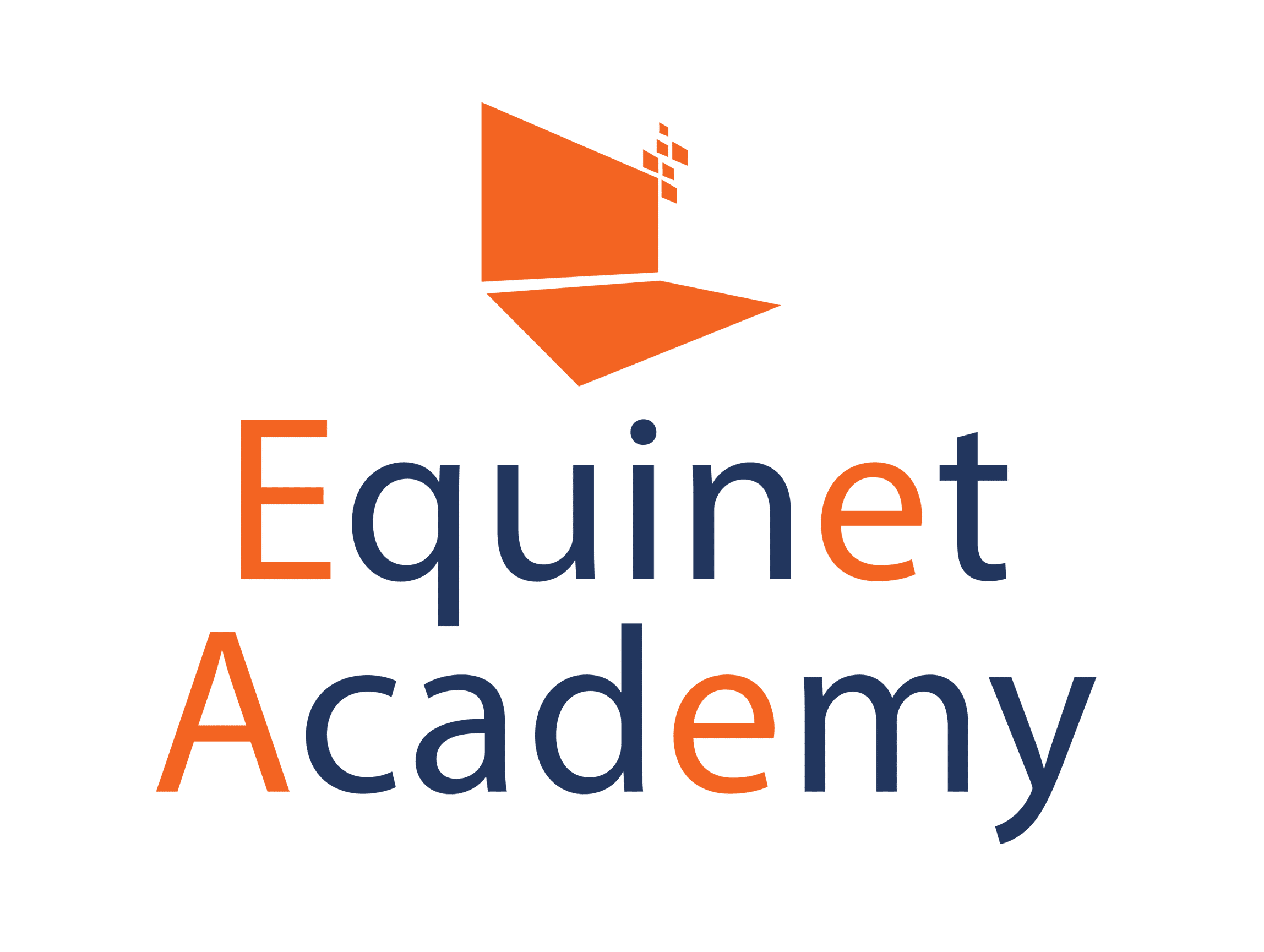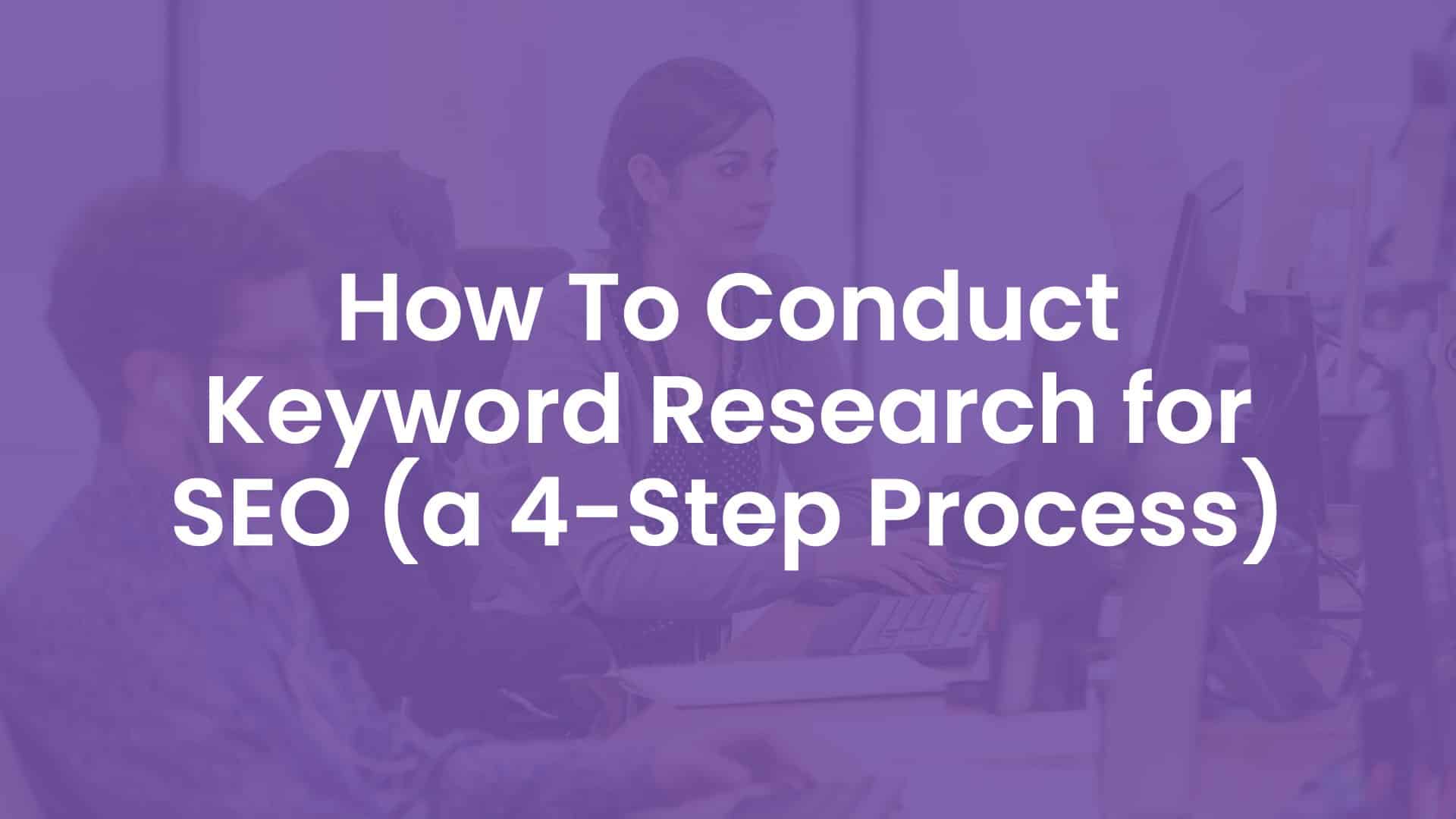Is your website struggling to attract the right audience? Keyword research is a crucial pillar of SEO, helping businesses connect with users searching for their products and services. By identifying high-intent keywords, you can improve search rankings, drive organic traffic, and reach potential customers at different stages of their buying journey. Unlike a one-time setup, keyword research is an ongoing strategy that fuels long-term growth and keeps your content relevant.
You can (and feel free to) conduct keyword research:
- Before launching a new business
- Before building a website
- When planning site architecture
- Before creating new content
- Before launching a new product
- If your website traffic is low
Not sure how to conduct keyword research? Check out our step-by-step guide here.
So Tell Me, What Are The Benefits?
Why is keyword research essential? It not only boosts website traffic but also attracts the right visitors—those genuinely interested in your offerings. While some keywords bring passive browsers, others attract high-intent buyers ready to convert. By focusing on high-value keywords, you can drive targeted traffic and improve conversion rates.
Keyword Research Helps You Discover New Buyer Personas and Understand Buyer Intent
Keyword research helps you understand user intent and where customers are in their buying journey.
- A search for ‘how to take professional photos’ suggests interest in educational content.
- ‘Best DSLR camera for beginners’ indicates that a user is in the consideration phase.
- ‘Second-hand Canon EOS 6D cheap’ signals strong purchase intent.
By recognising these differences, you can align your content strategy with the needs of potential customers, increasing engagement and conversion opportunities.
On the other hand, understanding user intent is key to effective keyword research. For example, someone searching for ‘how to take professional photos’ is likely looking for educational content, whereas ‘best DSLR camera for beginners’ suggests they are in the consideration stage, weighing their options. On the other hand, a search query like ‘second-hand Canon EOS 6D cheap’ signals strong purchase intent; this user is ready to buy.
Keyword Research Empowers You With Useful Content Ideas
If someone searches for ‘how to shoot beautiful photos,’ they likely own a camera and want to improve their skills. This insight allows us to craft content tailored to their needs, such as ‘How to Shoot Amazing Photos as a Beginner.’ This guide could include practical lighting tips, composition techniques, and post-processing tricks.
Additionally, recommending entry-level DSLRs can offer value to readers considering an upgrade. By consistently publishing high-quality, intent-driven content, you establish authority, gain trust, and naturally guide readers toward your products and services.
Providing content that aligns with user search queries positions your brand as a trusted authority. Over time, this trust fosters engagement, loyalty, and ultimately, conversions.
More Optimised Content
Equipped with a comprehensive list of keywords, you’ll be able to make better decisions when optimising your site by organising your content into individual pages where multiple related keywords are optimised on each page.
Here’s an example of a well-structured site.

Example Site Architecture of a Camera Store
For better SEO performance, it’s crucial to structure your website properly. Instead of merging ‘Camera Store’ and ‘Camera Brands’ into one page, separate them into individual pages. This ensures search engines can clearly understand each page’s focus. For example, the ‘Camera Store’ page should target keywords like ‘camera store’ and ‘camera shop,’ while the ‘Camera Brands’ page should focus on terms such as ‘best camera brands’ and ‘top camera brands’
In this guide, we’ll cover:
- Why it’s important to identify and understand your buyer personas before and during keyword research
- Types of keywords you should target
- Ways to do keyword research
- How to select the best keywords
Why Is It Important to Identify Your Buyer Personas?
Marketing without a clear target audience is like shooting in the dark—it wastes effort and resources.
People in different stages of the buying funnel type different search queries. As business owners and marketers, we know that customer profiles vary from age, gender, relationship status, problems faced in work and personal life, etc.
From an SEO perspective, not knowing who your customers are will make your keyword research sloppy and incomplete
Here’s an example: If you run a business that rents out empty spaces, your target audiences are:
- Business consultants looking to hold professional meetings with their clients
- Event planners looking to plan and organise birthday parties
- Influencers looking to run a preview seminar
- A tuition teacher looking to hold tuition classes
- Training providers looking to run workshops and courses
Note: You can gather this data through market surveys, purchasing relevant statistical reports, or analysing your current customer inquiries and profiles.
Let’s use the second example – the event planners. To understand the needs of an event planner, we have to think like one. Ask yourself these questions or discuss with anyone who’s throwing a 21st birthday party. What are their concerns and requirements? Remember, you’re an event planner now.
Here’s a list of things that should come up:
- Birthday party ideas
- Venue and location
- Cost
With these ideas, we can generate some keyword-optimised content. For birthday party ideas, we could come up with a listicle “10 Birthday Party Ideas That No One Will Ever Forget” and get it ranked for the search term “birthday party ideas”.
As for venue and location, we should optimise our site for commonly used search terms keywords such as “event venue singapore”, “event venue for birthday parties”.
Understanding your buyer personas can give you broad keyword ideas no keyword research tool can. We go further in-depth into buyer personas and how to create them in this article.
Types of Keywords You Should Target
Should we just grab the whole list of keyword ideas generated by your keyword research tool and optimise our site with them? Well, you can. However, you might be fighting an uphill battle. Some keywords are so competitive that it’s almost impossible to rank in the top 5 positions without some heavy off-page SEO (Content Marketing & Link Building).
Not all keywords are created equal. To maximise your SEO strategy, focus on keywords based on user intent. Keywords can be grouped into four stages of the AIDA funnel.
Again, we’re going to use the venue rental example.
Let’s look at some “Awareness” keyword examples:
How to organise a seminar
How to promote an event
“Interest” keyword examples:
Meeting room facilities
Seminar rooms in [location]
“Desire” keyword examples:
Training room rental rates
Training room rental [more specific location or a brand name]
“Action” keywords examples:
Rent a training room in [location]
Rent a meeting room [location]
As you can infer, “Desire” and “Action” keywords are higher value keywords as they signify a higher level of interest in a particular product or service, therefore, we should focus our SEO campaign on targeting these keywords first.
Then there’s short tail, long tail, and location-based keywords. Long-tail keywords are generally less competitive and more conversion-focused than short-tail keywords. With the rise of voice search and semantic search, users are phrasing queries in more natural, conversational ways.
Optimising for these longer queries can improve your visibility in Featured Snippets and voice search results. Location-based keywords signify a strong interest in a particular location, so if you’re based in that location, you’ve zeroed in on your target audience.
Ways to Do Keyword Research
While tools like Google Keyword Planner are useful, they often miss less obvious yet valuable keyword opportunities. Expanding your research with tools like Google Suggest, People Also Ask, AnswerThePublic, and competitor keyword analysis can uncover hidden keyword gems that may not appear in standard keyword planners.
Say, for example, when you enter a seed keyword “training room rental” into Google Keyword Planner, you’d get a broad list of keyword ideas like so:

Keyword research example with Google Keyword Planner
What you get is a bunch of closely related keyword ideas such as:
- Seminar Room Rental
- Training Room to Rent
- Training Room on Rent
- Training Rooms for Rent near me
While tools like Google Keyword Planner provide a solid starting point, they often miss less obvious yet highly valuable keyword opportunities. Expanding your research with tools like Google Suggest, People Also Ask, and competitor analysis can uncover hidden keyword gems.
For instance, instead of targeting only generic terms like ‘training room rental,’ Google Suggest may reveal high-intent queries such as ‘training room rental singapore’ or ‘training room rental near me’. Optimising for these hyper-specific keywords ensures your content aligns precisely with user intent, boosting your chances of ranking higher.

Google Keyword Suggest example

Check out these keywords suggested by Google:
- Training room rental singapore chea
- Free training room rental singapore
- Singapore Shopping Centre training room
- Training Room Rental Paya Lebar
If your training rooms are located in a Shopping Centre, your results should be one of the most relevant to the searcher as it fully matches the searcher’s intent. Wouldn’t it be a pity if you didn’t optimise your page for this key phrase?
Here are some other recommended keyword research tools:
How to Select the Best Keywords
There is no single ‘best keyword’—it depends on factors like:
- Domain Authority: Websites with lower authority should focus on less competitive, long-tail keywords for faster ranking.
- Conversion Potential: Prioritise keywords that drive action, such as long-tail, location-based, branded, and high-intent search terms.
Tracking conversions through Google Analytics, Search Console, and AdWords can help refine your keyword strategy over time.
For the third point, you need to track your conversions through your AdWords campaigns, Webmaster Tools, and Google Analytics goal conversion data.
If your site is already ranking for almost all of your longtail, location-based, branded, and “Action” keywords, you should move up and optimise for more generic and “Awareness” keywords, as the audience you intend to reach may not initially be interested in purchasing your products and services, but may do so in the longer term.
AI-Driven Keyword Research
Keyword research has always played a pivotal role in successful Search Engine Optimisation (SEO). By identifying what users are actively searching for online, businesses can align their content strategies to meet real-world demand.
However, traditional keyword research is often time-consuming, reliant on static data, and vulnerable to human bias. Today, with the advent of Artificial Intelligence (AI), keyword research is experiencing a revolution—one that enhances speed, accuracy, and strategic insight.
Popular AI-Powered Keyword Research Tools
As AI continues to redefine SEO best practices, several cutting-edge platforms have emerged, offering intelligent keyword research solutions that go beyond traditional data scraping. These tools leverage artificial intelligence to streamline content creation, identify competitive gaps, and surface high-performing keywords tailored to user intent. Below are four standout platforms making a significant impact:
1. Surfer SEO

Image Source: https://surferseo.com/
Surfer SEO is a content intelligence platform that blends AI with SERP (Search Engine Results Page) analysis. It evaluates over 500 on-page signals across the top-ranking pages for a target keyword, then uses this data to create comprehensive content guidelines.
Users are provided with real-time recommendations on keyword usage, content structure, paragraph length, and even optimal word count. With features like the Content Editor and SERP Analyzer, Surfer SEO is ideal for teams aiming to write SEO-optimised content that aligns closely with what Google is currently rewarding.
Key strengths:
- Real-time content scoring based on SERP data
- NLP-driven keyword suggestions
- Integration with Google Docs and WordPress
2. Clearscope
Image Source: https://www.clearscope.io/blog/on-page-seo-checker
Clearscope is renowned for its clean interface and powerful keyword relevance scoring system. It uses AI and natural language processing to evaluate the comprehensiveness of your content against top-ranking competitors. By identifying related terms and secondary keywords, Clearscope ensures your content addresses the full scope of a user’s query. It’s particularly popular among content marketers and SEO copywriters who want to improve both depth and readability.
Key strengths:
- Easy-to-use content grade and keyword density tracker
- Google Docs plugin for seamless workflow
- Excellent for editorial teams focusing on quality and relevance
3. MarketMuse

Image Source: marketmuse.com
MarketMuse is a strategic content planning and optimisation tool that uses AI to analyse content gaps, topic relevance, and keyword opportunities. It builds detailed content briefs and compares your existing pages against industry standards and competitor benchmarks.
Through topic modelling, MarketMuse identifies semantically related terms and suggests areas where you can improve topical authority. This makes it ideal for large websites looking to scale content production and improve organic visibility across complex topics.
Key strengths:
- AI-driven content briefs and topic clusters
- Competitive analysis and gap identification
- Predictive content scoring for ranking potential
4. Frase

Image Source: https://frase.io/blog/frase-vs-surfer-seo/
Frase focuses on understanding and matching search intent by analysing user-generated questions, Google’s ‘People Also Ask’ boxes, and SERP features. It helps content creators identify the core concerns of searchers and structure their content to address those needs directly. Frase’s AI Writer can draft SEO-friendly content outlines, FAQs, and summaries, saving time while ensuring alignment with user expectations.
Key strengths:
- Intuitive AI content assistant for fast ideation
- Built-in SERP and intent analysis
- Answer-focused content brief generation
Together, these AI-powered tools not only simplify the keyword research process but also elevate the overall content strategy by focusing on what truly matters—user intent, topic relevance, and competitive context. Whether you’re a solo blogger or part of a large content team, these platforms can help bridge the gap between insightful planning and impactful execution.
How AI is Revolutionising Keyword Research
AI has transformed keyword research by offering automation, deep learning insights, and real-time data analysis. Here are the key ways AI is making a difference:
1. Understanding Search Intent More Accurately
Traditional keyword research often focuses on search volume and competition, but AI enhances this process by analysing search intent. AI-driven tools classify queries into different intent categories:
- Informational: Users looking for knowledge (e.g., “how to use AI for SEO”)
- Navigational: Users searching for specific brands or websites (e.g., “Google Keyword Planner”)
- Transactional: Users ready to make a purchase (e.g., “buy AI SEO tool”)
- Comparative: Users weighing options (e.g., “best AI keyword research tools”)
AI-powered algorithms can predict and refine keyword strategies by aligning content with the user’s search intent, improving click-through rates (CTR) and conversions.
2. Predicting Keyword Trends and Future Search Behavior
AI tools analyse massive datasets to predict future search trends. Unlike traditional keyword research methods that rely on historical data, AI can:
- Identify emerging search topics before they become competitive
- Forecast seasonal trends for better content planning
- Analyse competitors’ keyword growth and detect potential ranking opportunities
By leveraging AI-driven predictive analytics, businesses can stay ahead of the competition and create content that aligns with upcoming search trends.
3. Automating Keyword Discovery and Clustering
Manual keyword research can be time-consuming, but AI automates the process by:
- Generating extensive keyword lists based on user queries and related searches
- Clustering similar keywords to streamline content planning
- Prioritising keywords with high-ranking potential using real-time search data
For example, AI-powered tools like SEMrush’s Keyword Magic Tool and Ahrefs’ Keyword Explorer group related keywords into topic clusters, making it easier to optimise for multiple search queries within a single content piece.
4. Enhancing Long-Tail Keyword Discovery
Long-tail keywords are specific search queries that often have lower competition but higher conversion rates. AI can:
- Analyse conversational search patterns (e.g., voice search and chatbots)
- Generate natural language keyword variations
- Optimise content for featured snippets and voice search
AI tools like Google’s BERT and RankBrain help search engines understand natural language better, making it crucial for businesses to optimise their content with AI-generated long-tail keywords.
Wrapping Up
Keyword research is the foundation of a successful SEO strategy. Whether you’re optimising for organic traffic, local search, or e-commerce, selecting the right keywords ensures your content reaches the right audience.
By applying these strategies, you can improve your search rankings, increase traffic, and drive more conversions. Ready to take your SEO skills to the next level? Explore our hands-on SEO courses at Equinet Academy and start optimising like a pro. Check out our hands-on SEO courses at Equinet Academy:
- Search Engine Optimisation (SEO) Training Course
- Advanced Search Engine Optimisation (SEO) Certification Course
We also have an array of digital marketing courses taught in person in Singapore or online.
Never Miss a Post
Receive the latest blog articles right into your inbox.
Dylan Sun
Dylan Sun is the Founder of Equinet Academy, a SkillsFuture Singapore WSQ-Accredited Digital Marketing training organisation. Passionate in all aspects of Digital Marketing and SEO, he extends his passion to helping people implement effective digital strategies to their businesses. Follow his blog at Equinet Academy to learn more about Digital Marketing.
Keep Learning
10 Best Keyword Research Tools for your SEO and Content Marketing Efforts
Check the best keyword research tools for a successful SEO strategy.
Never Miss a Post
Receive the latest blog articles right into your inbox.







Reader Interactions